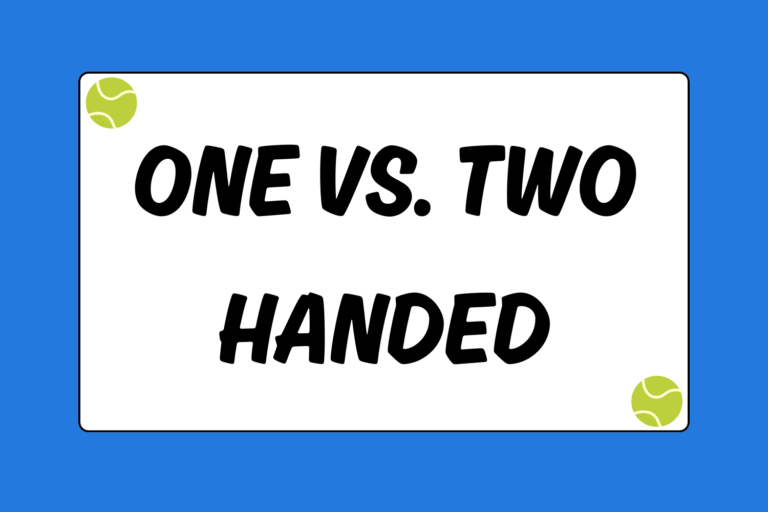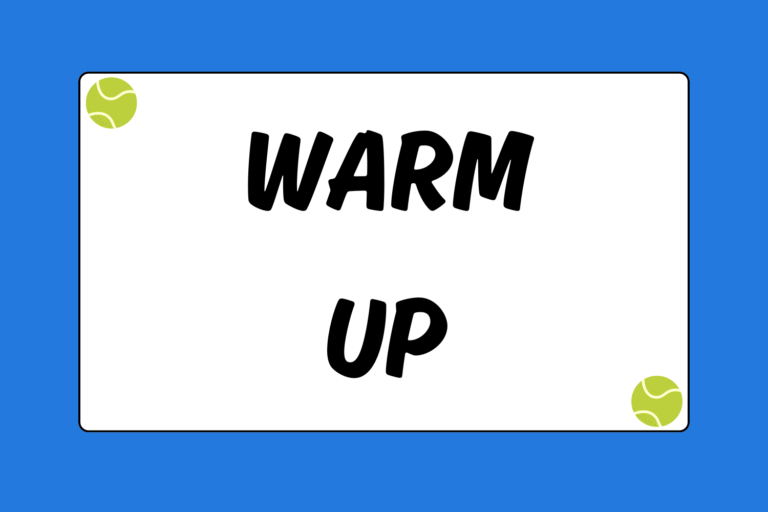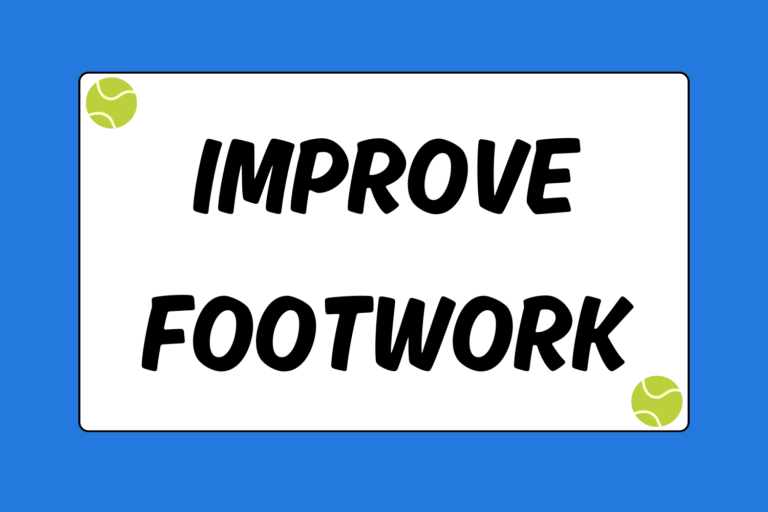If you’ve ever tuned in to watch a professional tennis match, you’ve probably noticed the abundance of officials and line judges that surround the court to determine if the ball lands in or out. To boot, a player can challenge the officials’ call with an intricate review system that uses multiple cameras and a high-speed video processor to triangulate the trajectory and bounce of the ball. Unfortunately, this quality of officiating and technology isn’t available at your local park or high school.
Without professional personnel or equipment, most competitive players determine if the ball lands in or out themselves. However, relying on human judgment can occasionally result in a missed call. Disagreements over a call are an unfortunate part of tennis, and they can quickly escalate to an ugly spat. This guide explains how to handle a supposed “bad” call.
Fuzzy Vision
There are many factors that are out of your control when determining whether or not the ball lands in or out. The following variables can affect the accuracy of a ruling, such as:
- Wind
- Sunlight
- Dark or overcast conditions
- Artificial lights
- Shadows
Couple these variables with a fast-moving ball that blurs as it bounces, and making the correct call can be challenging — especially if the ball lands near a line or where you have a poor vantage point. Some shots end up hair-splittingly close to the line. Other shots, like serves, travel faster than the human eye or brain can accurately track. As a result, players are left to fill in the gaps of their perception, and they occasionally make a mistake.
“There is a delay of roughly 80 to 150 milliseconds from the first moment of perception to our processing it, and that’s a long time. That’s one reason why it’s so hard to catch a fly — the fly’s ability to dance around is faster than our ability to determine where it is.”
David Whitney
Associate Professor at U.C. Davis’s Center for Mind and Brain
Right of Way
Remember, in a match without line judges, your opponent always gets the benefit of the doubt when calling your shot in or out. Likewise, if you see his ball land and you call it out, then it’s your point. It’s your call to make, and your opponent has to respect your ruling. That being said, you should never make a call unless you’re 100 percent sure you’re making the correct decision. If there’s any uncertainty on your part, then the benefit of the doubt goes to your opponent and the ball is considered “good.”
Calm & Composed
Never demean your opponent with a blatant or overzealous reaction to a call. It’s very poor sportsmanship to respond with over-the-top physical or verbal disapproval — no matter how certain you are that his call is incorrect. Especially in sanctioned leagues, such as high school or college matches, you need to keep your cool. You can be penalized for unsportsmanlike reactions, so try to maintain your composure.
Rather than flinging your racquet to the ground and angrily flailing your hands in the air, calmly approach the net and ask your opponent where the ball landed. If you’re still dissatisfied, ask him if he’s absolutely sure that the ball landed out. Your opponent will more than likely maintain his position on the call, so there’s little reason to dwell on his decision.
If you you’re competing in a high school or college match and believe that your opponent has consistently missed calls, summon a line judge. This request might irk your opponent, but take care of the problem before it escalates into a more serious issue.
Forget about Payback
Never retaliate with a bad call of your own, no matter how often your opponent makes a poor call. You may be convinced that your opponent is dishonest, but always refrain from purposely making a wrong call. Morality aside, cheating directly violates the principles inherent to tennis (and sports in general).
Similarly, don’t overreact and resort to verbal abuse or physical aggression. Hostile behavior is disrespectful and can lead to a penalty or automatic forfeit. Forget about your opponent’s misjudgment or lack of integrity, and focus on playing your best tennis.
Amazingly True Story
One of the most famous outbursts in professional tennis history occurred in the first round of the 1981 Wimbledon tournament. John McEnroe was extremely tense heading into the tournament, because he knew that he was favored to win — barring any major disaster. Known for his tantrums, many of the chair umpires referred to McEnroe as the “Super Brat.”
After McEnroe won the first set 7-6, his opponent, Tom Gullikson, took a second set lead at 4-3. McEnroe thought he was squeezed on a line call, smashed his racquet into the grassy turf, and was issued a warning. Later, when one of McEnroe’s serves was called deep, he smashed his new racquet into the ground. “Man, you cannot be serious!” he furiously belted. McEnroe claimed he could see chalk fly in the air as the ball struck the line, and he approached the chair umpire to ask if he, too, saw the ball land in. The umpire disagreed.
After another close call that went against him, McEnroe approached the line judge and told him: “You guys are the absolute pits of the world, you know that?” Tired of McEnroe’s antics (and confusing the word “pits” for an obscenity), the judge penalized him a point. Nevertheless, McEnroe went on to win the match and tournament title.
Short-term Memory
Tennis is a heady game and few situations are more frustrating than losing points because of blown calls. However, missed calls account for only a minor fraction, if any, of the total points played in a match. In addition, it’s entirely possible that your opponent sincerely believes the ball landed out, even if it didn’t. Calls are difficult, so don’t overreact — no one can make the right call 100 percent of the time. Rather than tearing your hair out over a supposed mistake, move on to the next point and prove to your opponent that you’re a better player.
Some players get so rattled after a blown call that they never regain their mental or physical composure. There’s no way to win a tennis match with a clogged mind and errant swing, so put the call behind you — quickly. Handle these trying situations with poise and confidence, and you’ll become a stronger competitor and more determined opponent.





